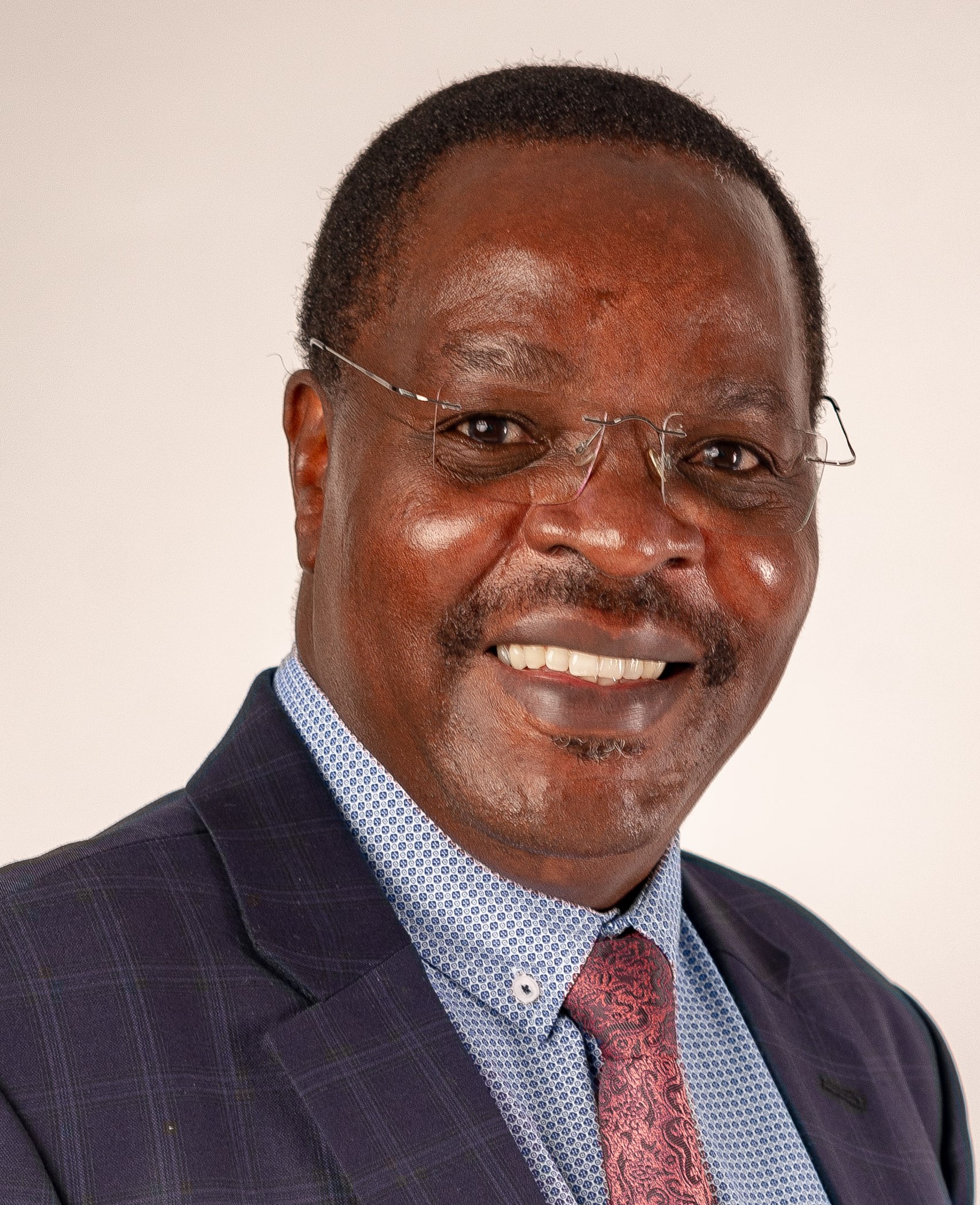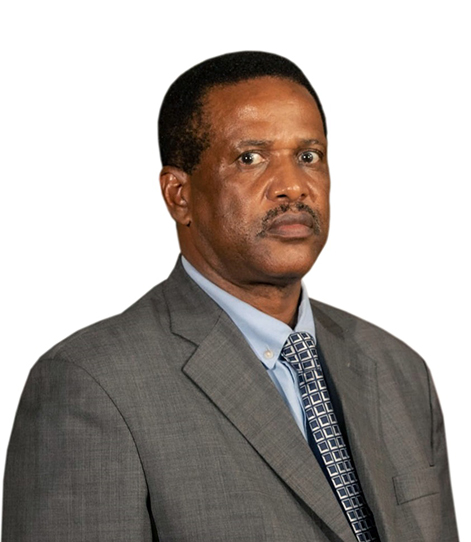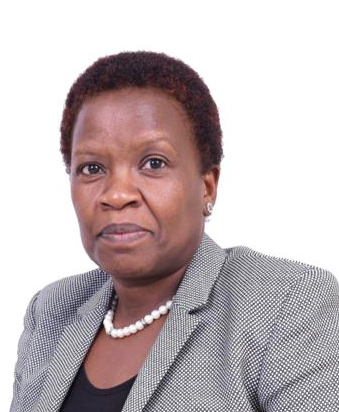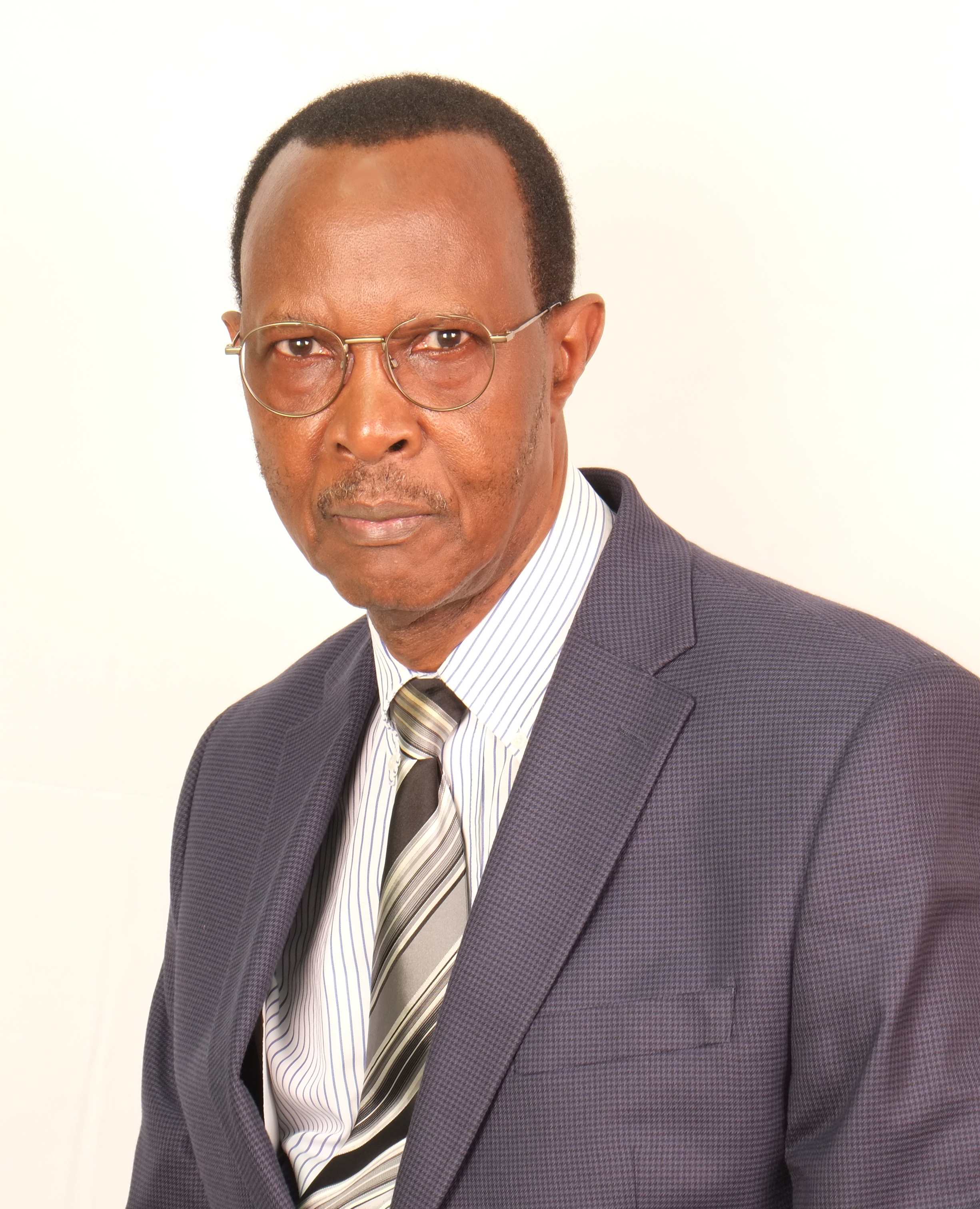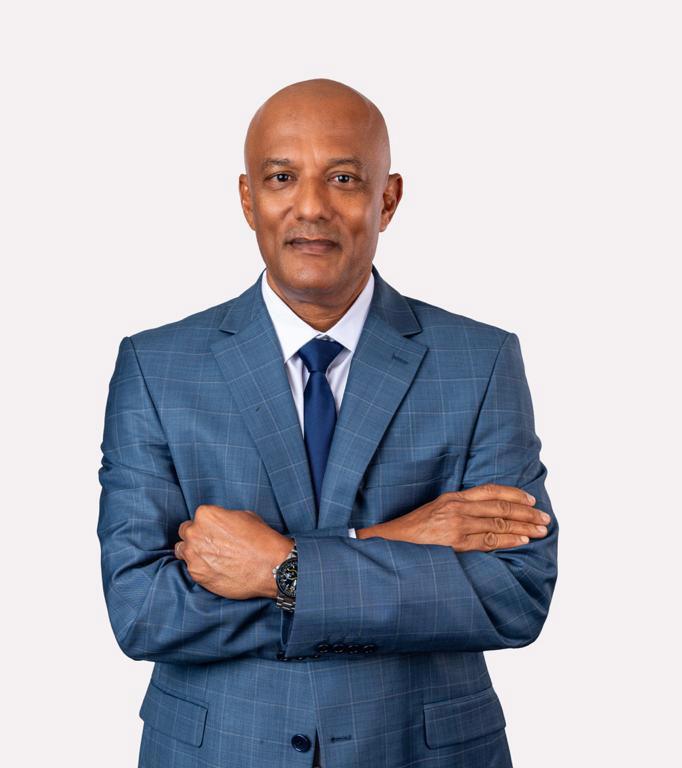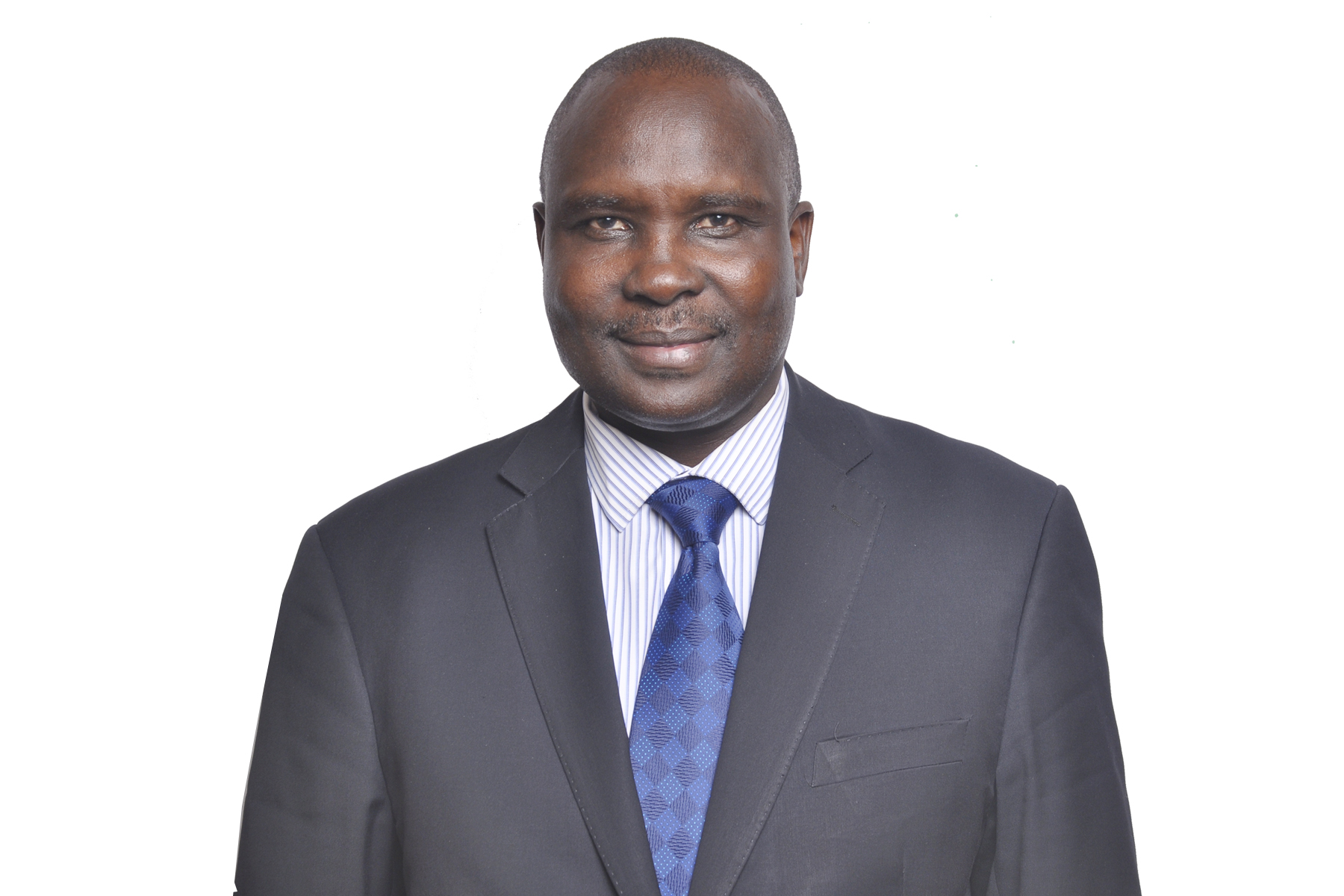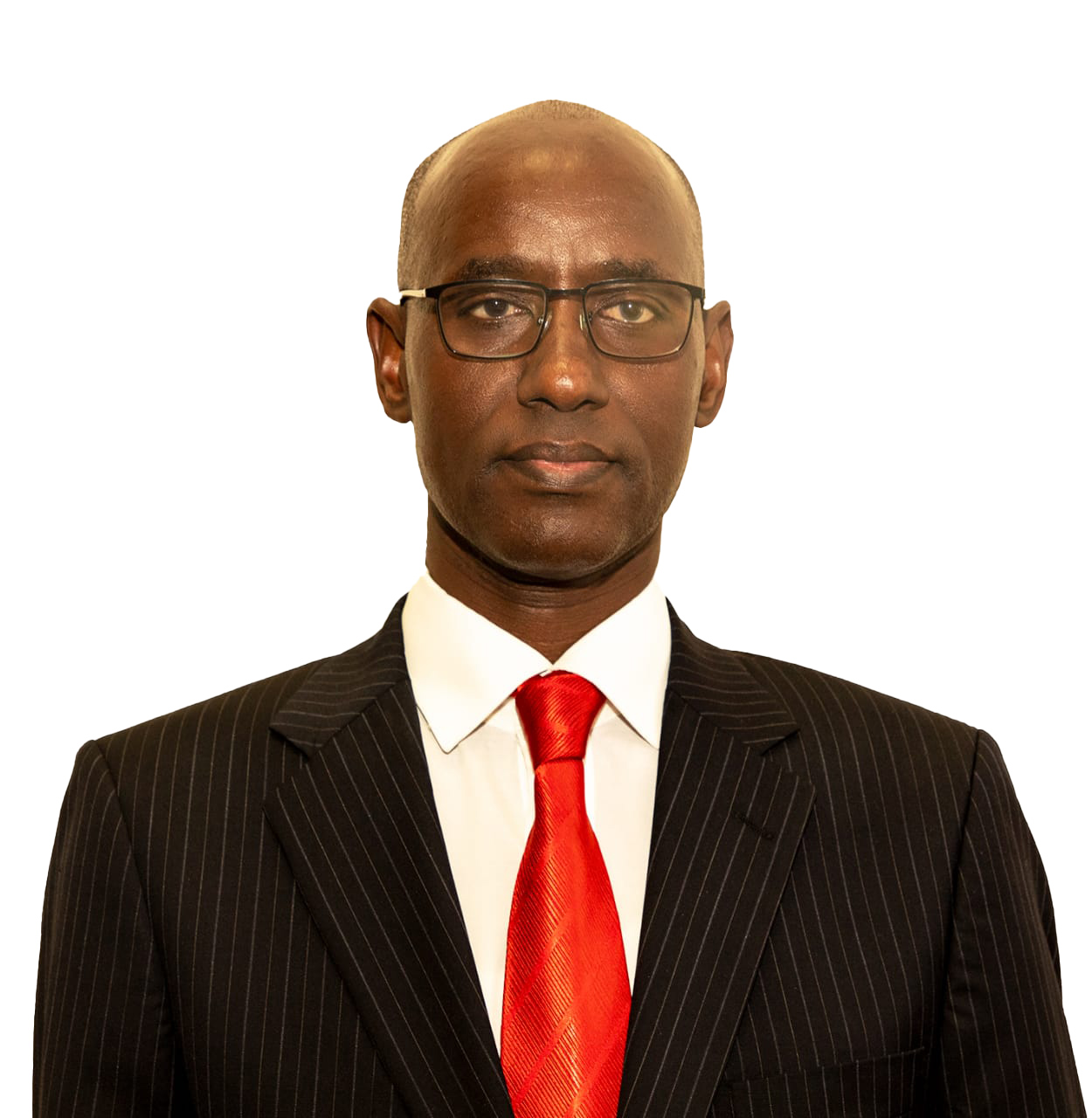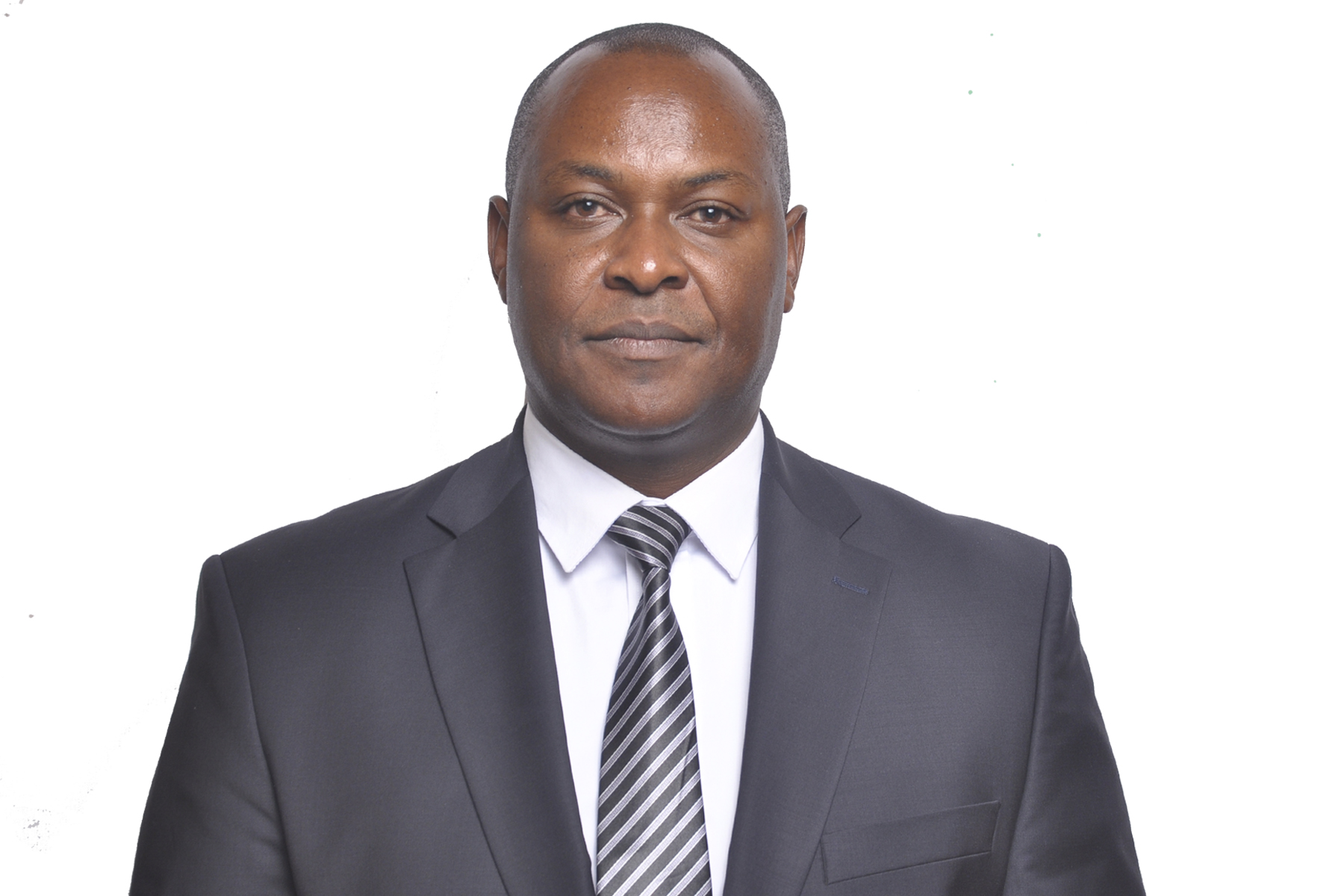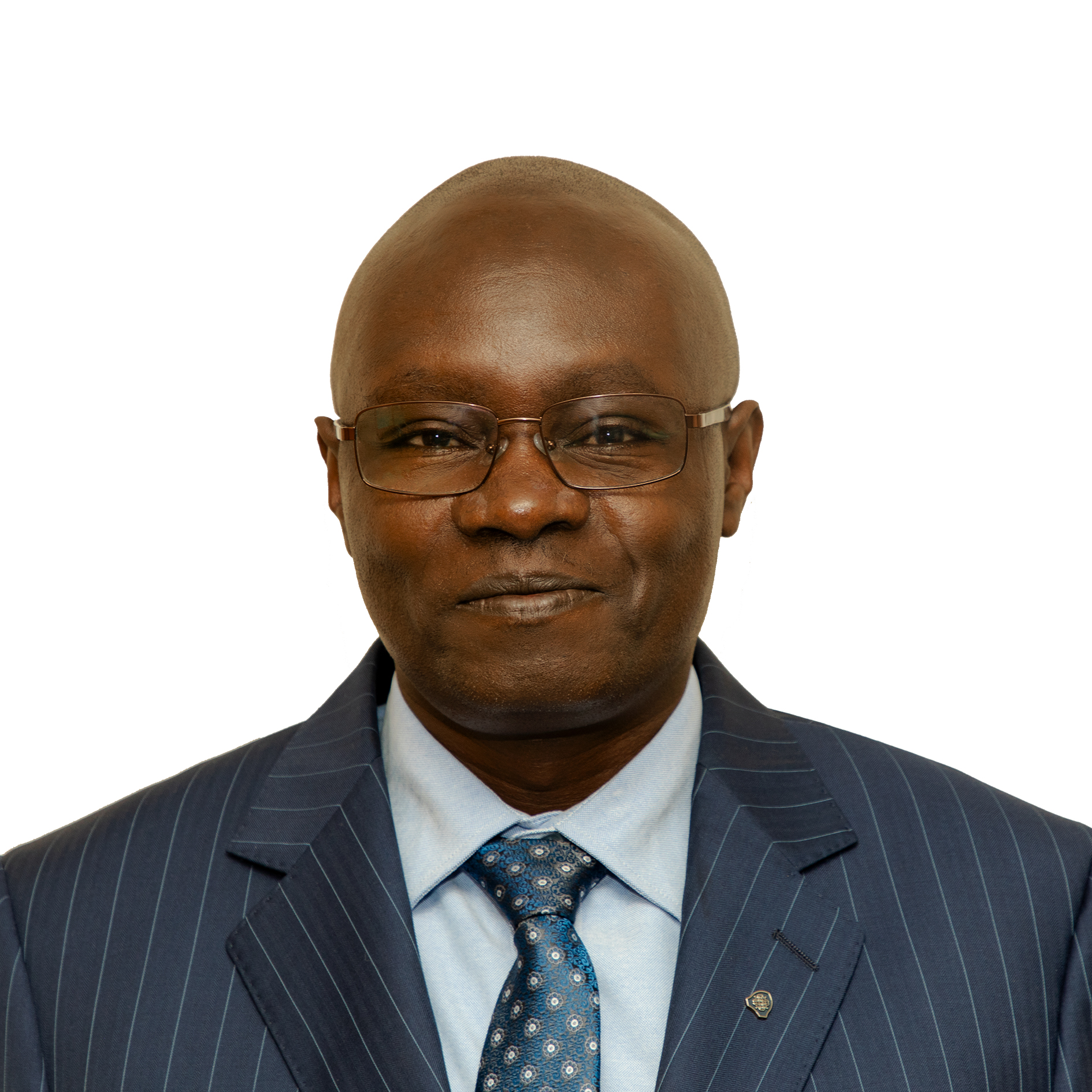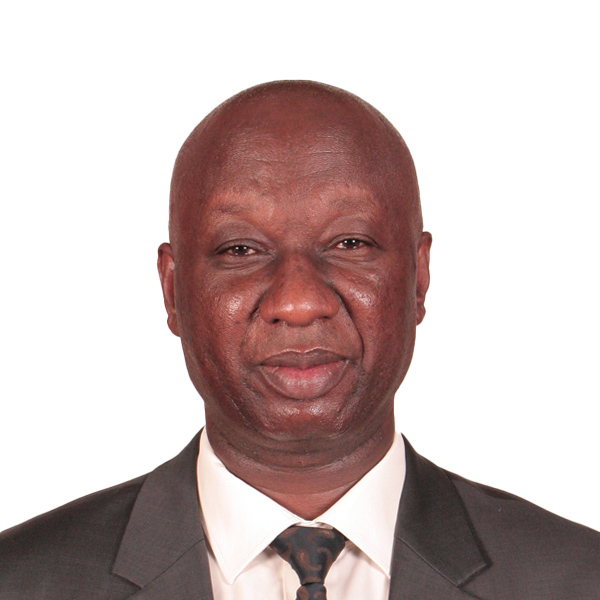The Ethics and Anti-Corruption Commission (EACC) is a public body established under Section 3 (1) of the Ethics and Anti-Corruption Commission Act, 2011. The Commission consists of a Chairperson and four other members appointed according to the provisions of the Constitution and Section 4 of the EACC Act. The Commission has a Secretariat, headed by the Secretary/Chief Executive Officer (CEO) to the Commission.
Mandate
To combat and prevent corruption, economic crime and unethical conduct in Kenya through law enforcement, prevention, public education, promotion of standards and practices of integrity, ethics and anti-corruption.
Vision
An integrity driven Kenyan society.
Mission
To promote integrity and combat corruption through law enforcement, prevention and education.
Core Values
Integrity
Professionalism
Fidelity to the Law
Courage
Teamwork
Innovation
-
Field Services
EXECUTIVE SUMMARY
The Ethics and Anti- Corruption Commission (EACC) is a statutory body, established under Section 3 of the Ethics and Anti -Corruption Commission Act No. 22 of 2011 pursuant to Article 79 of the Constitution of Kenya. The mandate of the Commission is to combat and prevent corruption through:
• Law enforcement
• Preventive measures
• Education
• Promotion of standards and best practices in integrity and ethics.
The mandate of the Commission is derived from the provisions of:
• Articles 79 and 252 of the Constitution
• The Ethics and Anti-Corruption Commission Act, 2011
• The Leadership and Integrity Act, 2012.
Parliament enacted the Ethics and Anti-Corruption Commission Act, 2011 and Leadership and Integrity Act, 2012 to provide, inter alia for the functions and powers of the Commission as well as its critical place in the implementation of Chapter Six of the Constitution. The Acts are being implemented alongside the Anti-Corruption and Economics Crimes Act (ACECA) of 2003.
EACC Structure
The Commission is composed of Commissioners and Secretariat. The five member Commissioners is headed by the Chairperson deputized by the Vice Chairperson. The Secretariat is headed by a Secretary who is the Chief Executive Officer and Secretary to the Commission. The Secretary is deputized by two Deputy Secretary/ Chief Executive Officers. One of the deputy oversees Technical Services and the other Corporate Services.
Technical Services is made up of five (4) Directorates:
• Investigations
• Legal Services
• Ethics and Leadership
• Preventive Services.
The Corporate Services comprise:
• Finance and Planning Directorates
• Human Resource and Administration
Other functional units include:
• Corporate Communications;
• Information and Communications Technology;
• Kenya Leadership Integrity and Forum (KLIF);
• Supply Chain Management;
• Research and Transformation; Internal Audit; and
• Regional Offices.
Reach
In terms of geographical reach, the Commission is spread out around the country in ten (10) Regional Offices, and has representation in almost all Huduma Centres. The Commission physical presence is as follows:
• EACC Headquarters at Integrity Centre-Nairobi;
• Western Region– Kisumu;
• North Rift Region – Eldoret;
• Lower Eastern Region – Machakos;
• Upper Eastern Region – Isiolo;
• South Rift Region– Nakuru;
• South Nyanza Region – Kisii;
• Upper Coast Region– Malindi;
• Lower Coast Region – Mombasa;
• Huduma Centres-across Kenya.
Further, the Commission also has online presence via a Website, Face Book, Twitter and You Tube.
-
Investigation Directorate
The Function of the Investigation Directorate entails:-
• Formulating, developing and reviewing policies, guidelines and regulations on enforcement of anti-corruption legislations;
• Investigating corruption and economic crimes;
• Managing corruption informers;
• Tracing and recovering corruptly acquired assets;
• Seeking preservation orders for assets that are subject of investigation in liaison with Legal Directorate;
• Supporting prosecution and civil recovery process in Court;
• Partnering and collaborating with any law enforcement agency in the investigation of corruption or economic crimes;
• Managing complaints and reports centre;
• Instituting civil proceedings against any person for the recovery of corruptly acquired property or benefits;
• Intelligence analysis and production; • Inducting, coaching and mentoring staff; and ensuring compliance with principles and values of good governance, human rights, transparency, accountability, ethics and integrity.
-
Legal Services Directorate
The Function of the Directorate entails:-
- Formulating, developing and reviewing policies, guidelines and regulations on enforcement of anti-corruption legislations;
- Evaluation of evidence for determination of its sufficiency;
- recommending acts of corruption and economic crimes and violation of codes of ethics to the Director of Public Prosecutions for Prosecution;
- Recovering corruptly acquired assets;monitoring progress of prosecution of anti-corruption and economic crimes and violation of codes of conduct cases in liaison with the Director of Public Prosecutions;
- Providing legal representation to the Commission;
- Providing legal services on contracts, Memorandums of Understanding and partnership agreements between the Commission and third parties;
- Instituting civil proceedings for compensation or recovery of public assets;
- Promoting mediation, conciliation and negotiation in resolution of cases; carrying out legal research;
- Ensuring compliance with principles and values of good governance, human rights, transparency, accountability, ethics and integrity.
-
Ethics and Leadership Directorate
Overview of Functions of Education Training and Public Awareness (ETPA)
- Public Education mandate drawn from Sections 11 and 13 of the EACC Act, 2011
- The department’s programmes are geared towards realizing strategic objective:
To enhance public education and awareness on corruption and unethical practices The mandate of the department is to:
- Design, develop and implement anti-corruption, ethics and integrity educational programmes in the:
- Public sphere;
- Private sphere;
- Formal sphere
- Design, develop and disseminate anti-corruption, ethics and integrity educational and other publicity materials throughout the country;
- Raise public awareness on ethical issues and educate the public on the dangers of corruption;
- Capacity building on ethics, integrity and anti-corruption; and
- To enlist public support in combating and preventing corruption.
The Department achieves the objectives by rolling out a number of programs targeting the various audience including;
- State and public officers
- General public
- Learning institutions
- Civil Society- NGOs, Faiths Sector, Media, CBAMs
- Private Sector
-
Preventive Services Directorate
The Preventive Function entails:-
- Carrying out examinations of policies, procedures, systems and practices in public bodies to detect corrupt practices and to secure review of work methods;
- Offering Advisory Services to organizations, agencies, departments and other institutions on anticorruption and good governance measures;
- Providing guidance on strengthening examined institutions in developing implementation plans, and in implementing recommendations;
- Developing and promoting standards and best practices in anti-corruption in public institutions;
- Developing and implementing a public sector integrity certification programme;
- Identifying loopholes for corruption and making recommendations on how to seal them;
- Liaising with other departments of the Commission and government agencies to address gaps that are identified;
- Reviewing and providing feedback on quarterly reports on anticorruption prevention;
- Reviewing of anti-corruption guidelines under performance contracting programme;
- Coordinating and preparing the Commission into the public sector performance contracting framework.
-
Research and Transformation Department
The Research and Transformation Function entails:-
- Carrying out research on anti-corruption, economic crimes and related activities;
- Coordinating development and implementation of policy and reform programmes;
- Coordinating the development and implementation of the Commission’s Strategic Plan;
- Undertaking monitoring and evaluation of Commission’s programmes; producing, publishing and disseminating research and policy reports; informing and improving anti-corruption and governance initiatives;
- Examining existing anti-corruption policies and laws in conjunction with Legal Service Directorate;
- Improving anti-corruption and governance initiatives;
- Proposing reforms in institutional and administrative frameworks on anti-corruption and economic crimes in the public and private sectors.
-
Corporate Services
The Corporate Services Function entails:-
- Managing human resource;
- Coordinating the recruitment, selection and placement of new employees;
- Developing and implementing training and development programs for staff;
- Managing approved compensation and rewards for staff;
- Managing payroll for staff;
- Coordinating employee benefits;
- Developing and implementing performance management processes;
- Maintaining and coordinating the staff welfare, health and safety measures;
- Overseeing office accommodation;
- Coordinating transport and logistics;
- Coordinating security services of the Commission;
- Ensuring safe custody of the Commission’s assets;
- Overall financial management control of voted funds and grants;
- Ensuring promotion of efficient allocation and utilization of financial resources for maximum benefit to EACC;
- Providing an effective and appropriate Financial Framework for attainment of EACC functions;
- Preparing annual budgets in collaboration with all directorates, departments and units;
- Forecasting and monitoring expenditure;
- Prioritization of projects and activities for the purpose of financial allocations in the budget;
- Controlling, monitoring and implementing the EACC’s financial resources.
-
Budget and Planning
The Budget and Planning function entails:-
- Developing improved budgetary practices and systems within the Commission;
- Reviewing financial and physical implementation of projects and programmes;
- Analyzing risk in budget management;
- Coordinating the development of budget policy, budget systems and reforms formulating annual work plans for the commission;
- Realigning plans to the budget;
- Coordinating in liaison with Human Resource Department the development and implementation of the Commission’s plans and performance contract;
- Reviewing the implementation of the Commissions plans, programmes and projects;
- Scheduling of expenditure to be consistent with work plans;
- Coordinating resource mobilization for implementation of Commission programmes;
- Monitoring budget implementation.
-
Finance and Accounts
The Finance and Accounts function entails: –
- Ensuring promotion of efficient allocation and utilization of financial resources for maximum benefit to EACC;
- Providing an effective and appropriate Financial Framework for attainment of EACC functions;
- Preparing the EACC’s Medium Term Expenditure Framework (MTEF); in collaboration with Planning, Monitoring and Evaluation Unit;
- Preparing annual budgets in collaboration with all departments/units;
- Forecasting and monitoring expenditure;
- Prioritization of projects and activities for the purpose of financial allocations in the budget;
- Controlling, monitoring and implementing the EACC’s financial resources;
- Applying sound principles, systems and techniques in accounting for EACC finances, assets, revenue, expenditure and costs;
- Accounting for special funds set up under various statutes;
- Managing accounting information, which includes coordination and rationalization of estimates, annual appropriation and fund accounts, cash flow control and cost analysis;
- Overseeing commitment of funds and expenditure trends;
- Budgeting monitoring and reporting;
- Reallocating funds within the budget ;
- Overall financial management control of voted funds and grants.
-
Human Resource
The Human Resource Function will entail:-
- Developing appropriate human resource policies, rules and regulations;
- Effective organization and administration of the Human Resource Management including appropriate human resource management policies, rules and regulations in EACC for effective performance and productivity;
- Facilitating recruitment, placement, training and development of staff;
- Carrying out training needs assessment;
- Coordinating the implementation of Performance Appraisal Systems;
- Facilitating human resource planning, communication, discipline, employee relations, remuneration and staff welfare;
- Managing the payroll;
- Ensuring compliance with statutory human resource legislation;
- Advising the Chief Executive Officer and Heads of Directorates on staff deployment and resource matters;
- Managing human resource and general records.
-
Administration Department
The Administration Function entails:-
- Overseeing office accommodation;
- Managing office services and administrative staff;
- Coordinating transport and logistics;
- Preparing budget for administrative services;
- Controlling and monitoring the location and movement of equipment;
- Coordinating security services of the Commission;
- Devising and implementing security procedures and policies;
- Overseeing daily and weekly cleaning of offices and compound;
- Investigating all security incidences and liaising with the police and other security services;
- Coordinating rental management;
- Ensuring safe custody of the Commission’s assets;
- Overseeing maintenance and provision of transport;
- Providing cross-functional administrative services;
- Liaising with relevant legal entities to acquire legal documents such as motor vehicle and assets insurances and licenses.
-
Information Communication Technology Department
Functions of ICT department at Commission
- Ensure continuous availability of management information systems (MIS) at the Commission
- Ensure continuous availability of networks and communication services at the Commission
- Continuously manage contracts with providers at the Commission.
- Be cost effective and deliver high standards of service at the Commission
- Raise awareness on new ICT trends at the Commission
- Build a leading ICT environment which continuously improves and provides innovative ICT services at the Commission
- Continuously provide user maintenance and support at the Commission
During the financial year 2017-18, the Commission continued to enhance the ICT infrastructure through implementation of an Offsite Disaster Recovery Setup, improvement of network security, integration of Finance and Human Resources systems and installation of end-user devices. The Commission also drafted an Automation Implementation Roadmap to guide in comprehensive implementation of all institutional processes over a period of three years.
-
Corporate Communications Department
The Corporate Communications Function entails:-
- Developing communication strategies for the Commission;
- Overseeing general protocol at the Commission; coordinating the organization of public events;
- Advising on media issues and acting as a link between the media key stakeholders and the Commission; monitoring media;
- Ensuring appropriate branding and visibility within and without the Commission;
- Arranging for media coverage of all Commission’s events; sourcing for appropriate television and radio programs to disseminate information on activities of the Commission;
- Documenting the Commission events through video, photography and press cuttings;
- Preparing and placement of radio and TV infomercials;
- Coordinating the preparation of official speeches; coordinating the preparation of the Commission’s newsletter and corporate materials;
- Overseeing the preparation of exhibitions and trade fairs; and ensuring that appropriate feedback mechanisms are in place in the Commission.
-
Supply Department Chain Department
The Supply Chain Management Function entail:-
- Coordinating activities in delivering a combination of inputs, outputs/outcomes for specified requirements in accordance with the Public Procurement and Disposal Regulations, 2006 and other laws and policy on procurement;
- Preparing procurement plans in accordance with budget processes; requisitioning, receiving and issuing of stores;
- Preparing and maintenance of stores records;
- Stocktaking and reconciling;
- Store security, safety, maintenance and proper preservation of stores;
- Reviewing, updating, interpreting and implementing existing Procurement Regulations, Procedures and Systems;
- Preparing and ensuring implementation of procurement manual;
- Sourcing of supplies;
- Assessing and measuring performance of supplies of goods, works and services;
- Maintenance of procurement records;
- Conducting market research;
- Carrying out internal monitoring and evaluation of stores;
- Developing internal procurement on supply policy procedure manuals;
- Provision of guidelines on Public Private Partnerships;
- Ensuring smooth distribution of inventory;
- Management of receipts and issues.
-
Internal Audit Department
The Internal Audit Function entails:-
- Examining on a test basis of evidence supporting amounts and disclosures in the Commissions’ financial statements;
- Assessing accounting policies used;
- Advising on methods and procedures of proper and effective internal control methods;
- Ensuring accountable records are accurate;
- Identifying any accounting errors, cases of fraud and initiating investigations;
- Reviewing and recommending the strengthening of internal control systems;
- Providing assurance that the financial statements are in conformity with the laws and statutes governing the Commission.
The Ethics and Anti- Corruption Commission (EACC) a statutory body, established under Section 3 of the Ethics and Anti -Corruption Commission Act No. 22 of 2011 pursuant to Article 79 of the Constitution of Kenya. The mandate of the Commission is to combat and prevent corruption through law enforcement, preventive measures, education and promotion of standards and best practices in integrity and ethics.
The mandate of the Commission is derived from the provisions of Articles 79 and 252 of the Constitution, The Ethics and Anti-Corruption Commission Act, 2011, and the Leadership and Integrity Act, 2012. Parliament enacted the Ethics and Anti-Corruption Commission Act, 2011 and Leadership and Integrity Act, 2012 to provide, inter alia for the functions and powers of the Commission as well as its critical place in the implementation of Chapter Six of the Constitution. The Acts are being implemented alongside the Anti-Corruption and Economics Crimes Act (ACECA) of 2003.
The Commission shall have all powers generally necessary for the execution of its functions under the Constitution, this Act, and any other written law. Without prejudice to the generality of subsection (1), the Commission shall have the power to :–
- Educate and create awareness on any matter within the Commission’s mandate;
- Undertake preventive measures against unethical and corrupt practices;
- Conduct investigations on its own initiative or on a complaint made by any person, and,
- Conduct mediation, conciliation and negotiation.
-
1956
The relatively young nation of Kenya has experienced a tumultuous history in the fight against graft. The country’s anti-corruption legislation dates back to 1956 with the enactment of the now defunct Prevention of Corruption Act (formerly Cap. 65, LOK). This statute was in operation from August 1956 to May 2003.
-
1993
Initially, the Prevention of Corruption Act (Cap. 65) was enforced by the Police Department, notably the Anti-Corruption Squad constituted in 1993. The Squad was however disbanded in 1995 before it could make any significant impact
-
1997
Amendment of the Prevention of Corruption Act (Cap 65, LOK) in early 1997 led to the creation of the Kenya Anti-Corruption Authority (KACA), whose first director was John Harun Mwau. He was appointed Director in December 1997.
-
1998
After only six months in office, Mwau was suspended and later removed in 1998 through a Judicial Tribunal appointed by the then President Daniel T. arap Moi. Justice Aaron G. Ringera was appointed to replace him in March 1999.
-
2000
On December 22, 2000, the High Court in the case of Gachiengo V Republic (2000) 1 EA 52(CAK) made a ruling that the existence of KACA undermined the powers conferred on both the Attorney General and the Commissioner of Police by the Constitution of the Republic of Kenya. In addition, the High Court further held that the statutory provisions establishing the Authority were in conflict with the Constitution. That spelt the death of KACA and the various efforts in the fight against corruption in Kenya.
-
2001
The Anti-Corruption Police Unit (ACPU) was created by Executive Order in August 2001. ACPU, which operated under the Criminal Investigations Department (CID) of the Police took over KACA’s mantle in September 2001 and performed this function until creation of the Kenya Anti-Corruption Commission (KACC). KACC was a public body established under the Anti-Corruption and Economic Crimes Act (ACECA) No. 3 of 2003 on 2nd May 2003.
-
2003
These two legislations became operational on 2nd May 2003. Section 70 of the (ACECA) repealed the Prevention of Corruption Act (Cap. 65).
-
2009
Following parliamentary pressure in July 2009, Justice Ringera was forced to resign from office together with Ms. Sichale and Dr. Wanjala, paving way for appointment of Prof. P.L.O. Lumumba to take office in September 2010. Prof. Jane Onsongo (Preventive Services) and Mr. Pravin Bowry (Legal Services) joined the existing team of Dr. Mutonyi and Wilson Shollei as KACC assistant directors
-
2011
The EACC was established on 5th September 2011 and Commissioners Irene Keino (Ms.) and Prof. Jane K. Onsongo (Mrs.) appointed on 11th May 2012. Pursuant to Article 79 of the Constitution, Parliament disbanded KACC on 24th August 2011 through enactment of the Ethics and Anti-Corruption Commission Act (EACC), 2011. The EACC was established on 5th September 2011 and Commissioners Irene Keino (Ms.) and Prof. Jane K. Onsongo appointed on 11th May 2012 and later joined by Mr. Mumo Matemu as Chairman, who took the oath of office on 5th August 2013 after the Court of Appeal quashed an earlier ruling barring him from assuming office on claims of lacking integrity.
-
2013
Mrs. Jane Muthaura was the acting Secretary/Chief Executive Officer till 21st January 2013, when Mr. Halakhe D. Waqo was sworn in as the Secretary/ Chief Executive at the Ethics and Anti-Corruption Commission (EACC). Mr. Halakhe D. Waqo formally took office at the Ethics and Anti-Corruption Commission (EACC) after a swearing-in ceremony held at the Supreme Court of Kenya, on 21st January 2013. Mr. Halakhe became the Commission’s first Secretary/Chief Executive Officer and head of the Secretariat, EACC established to replace the Kenya Anti-Corruption Commission in 2012. Mr. Waqo has experience in international development and humanitarian work spanning over 20 years. He is an expert in peace building and conflict management, community mobilization, policy advocacy, pastoral development, fundraising human resource development and management. He is a Member of the Chartered Institute of Arbitrators, MCIArb, since 2011. He is also a Member of the Institute of Directors (K). He served as the Chair / Convenor (October 2015 to 21st October 2016): Investigations and Prosecution Multi-Agencies’ Team (MAT), Kenya; Mr. Waqo is currently a member of MAT. He has been a member of the Executive Committee of the East African Association of Anti-Corruption Agencies (EAAACA) from September 2015 to date. Mr. Waqo was also a Member of National Committee, Kenya (2010-2012): International Conference on Great Lakes Region (ICGLR) Committee for Prevention of Genocide and Mass Atrocities. He has served as a Global Coordinator, World Initiative for Sustainable Pastoralism (WISP/IUCN), International Conflict and Emergencies Advisor – Eastern Africa, with ActionAid International, Horn of Africa Advisor for African Council for Religious Leaders, and Programme Coordinator for Kenya and Rwanda Programmes with Oxfam GB, among others. Internationally he has served as international representative of the Board of International Council for Voluntary Agencies (ICVA) – Geneva, Switzerland and on boards of a number of local and regional development organizations. Mr. Waqo has also undertaken a number of private consultancies including facilitating training on conflict sensitive programming for nongovernmental organizations responding to post election violence in Kenya and conducted civic education training. The CEO’s resume includes a Master of Art Degree in Sociology as well as Conflict Studies and B.Ed. (Arts) degrees from the University of Nairobi and Kenyatta University, respectively. He is a PhD Candidate at the University of Nairobi.
-
2015
This Commissions’ life was also short lived . Between March and May 2015 Commissioner Jane Onsongo, Vice Chair Irene Keino and the Chairperson Mr. Mumo Matemu tendered their resignations as EACC Commissioners. In November 2015, President Uhuru Kenyatta nominated new Commissioners headed by Mr. Philip K.B. Kinisu, as Chairman, Commissioners Sophia Lepuchirit, Dr. Dabar Maalim, Paul Gachoka, and Rose Mghoi- Macharia who were sworn into office on 18th January 2016. Commissioner Sophia Lepuchirit is the Vice Chairperson
-
2016
In August 2016, Mr. Kinisu tendered his resignation from the Commission. Vice-Chairperson, Ms. Sophia Lepuchirit became the Acting Chairperson.
-
2017
On 23rd January 2017, the former Head of the Anglican Church in Kenya, Archbishop (Rtd) Eliud Wabukala was sworn in as the third EACC Chairperson, a position he holds to date.
-
2019
Mr. Twalib Abdallah Mbarak formally took office as the EACC Secretary/Chief Executive Officer following his swearing-in on 14th January, 2019. He is the Commission’s second Head of the Secretariat, having taken over from Mr. Halakhe D. Waqo whose six-year term ended in January, 2019.


